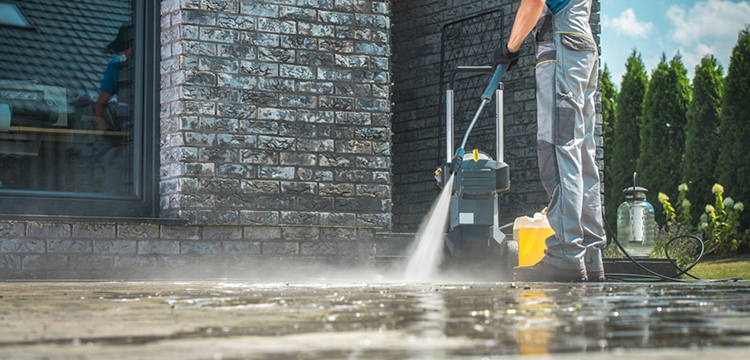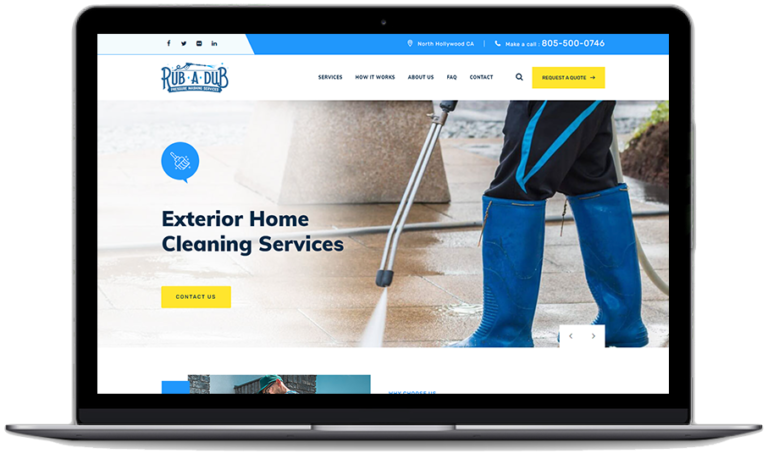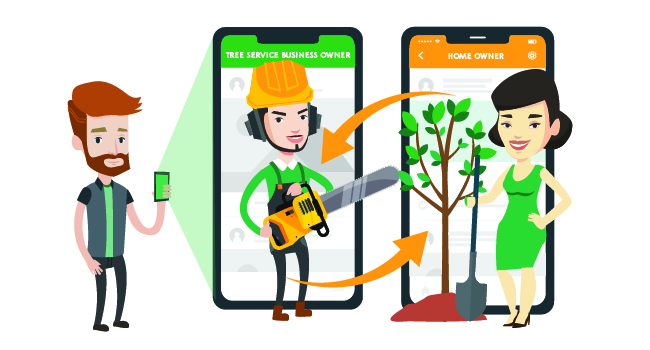Starting a pressure washing business can be a profitable venture, especially when you’re equipped with the right tools and knowledge. Home Service Direct is here to help you make the best decisions for your business, from generating more pressure washing leads to mastering pressure washing marketing. This ultimate guide will provide you with a comprehensive list of pressure washing equipment needed to launch your business successfully.
Pressure Washing Machines
1. Commercial-grade Pressure Washer
The most critical piece of equipment for any pressure washing business is a commercial-grade pressure washer. These high-powered machines can blast away dirt, grime, mold, and mildew from various surfaces. They typically offer a higher PSI (pounds per square inch) and GPM (gallons per minute) than residential models, making them more efficient and effective for professional use. There are two main types of pressure washers:
- Gas-powered pressure washers: These machines offer more power and mobility, as they don’t require an electrical outlet. However, they also produce more noise and require regular maintenance.
- Electric pressure washers: These units are quieter and more eco-friendly but typically offer less power and require an electrical outlet.
Consider your specific needs and budget when choosing a pressure washer for your business.
2. Hot Water Pressure Washer (Optional)
A hot water pressure washer can be a valuable addition to your equipment lineup. Hot water is more effective at breaking down and removing grease, oil, and other stubborn substances. While not necessary for every job, having this option can set your business apart and allow you to tackle a wider range of cleaning tasks.
Accessories and Attachments
3. High-pressure Hoses
High-quality, durable hoses are essential for connecting your pressure washer to water sources and spray guns. Look for hoses rated for the maximum PSI and GPM of your pressure washer and made from materials that can withstand the rigors of daily use.
4. Spray Guns and Nozzles
Invest in a variety of spray guns and nozzles to tackle different cleaning tasks. A standard spray gun with adjustable pressure and interchangeable nozzles for varying spray patterns and pressure levels are necessary. Common nozzle types include:
- 0-degree (red): Produces a concentrated, high-pressure jet for stubborn dirt and grime
- 15-degree (yellow): Ideal for heavy-duty cleaning tasks like stripping paint or cleaning concrete surfaces
- 25-degree (green): Suitable for general cleaning tasks like washing decks, driveways, and siding
- 40-degree (white): Provides a wider, gentler spray for delicate surfaces like windows and vehicles
5. Surface Cleaners
Surface cleaners are rotating attachments that cover a larger area than a standard spray nozzle, allowing you to clean flat surfaces like driveways, sidewalks, and parking lots more efficiently. They help prevent streaking and can significantly speed up the cleaning process.
6. Extension Wands
Extension wands allow you to reach high or hard-to-access areas without the need for ladders or scaffolding. These attachments are particularly useful for cleaning multi-story buildings, gutters, and other elevated surfaces.
7. Gutter Cleaning Attachments
Gutter cleaning attachments are curved extensions that connect to your spray gun, allowing you to clean gutters from the ground effectively. This specialized tool can save time and reduce the risk of accidents related to ladder use.
Safety Equipment
8. Protective Gear
Personal protective equipment (PPE) is essential for ensuring your and your employees’ safety. At a minimum, invest in the following safety gear:
- Safety glasses or goggles: Protect your eyes from high-pressure water spray, flying debris, and chemicals.
- Ear protection: Minimize the risk of hearing damage from the noise generated by pressure washers, especially gas-powered models.
- Gloves: Protect your hands from high-pressure water, chemicals, and hot surfaces.
- Steel-toed boots: Provide protection for your feet from heavy objects and prevent slips on wet surfaces.
9. First Aid Kit
Accidents can happen on the job, so having a well-stocked first aid kit on hand is essential. Include items like adhesive bandages, gauze, antiseptic wipes, pain relievers, and any other supplies necessary to treat minor injuries.
Chemicals and Cleaning Solutions
10. Detergents and Degreasers
While high-pressure water effectively removes many types of dirt and grime, certain cleaning tasks may require specialized detergents and degreasers. These solutions can help break down grease, oil, and other stubborn substances, making them easier to wash away. Be sure to choose eco-friendly, biodegradable options that won’t harm the environment or your customers’ property.
Miscellaneous Equipment
11. Water Tank (Optional)
If you plan to offer mobile pressure washing services, consider investing in a water tank to transport water to job sites without readily available water sources. A water tank can increase your flexibility and allow you to work in more remote locations.
12. Transportation and Storage
A reliable vehicle and storage solution are crucial for transporting your pressure washing equipment to job sites. Depending on the size and weight of your equipment, you may need a truck, van, or trailer. Make sure your vehicle has adequate space for all your equipment, including hoses, attachments, and chemicals.
By investing in the right pressure washing equipment, you can set your business up for success and provide top-notch services to your clients. Remember, Home Service Direct is here to help you grow your pressure washing business, offering expert advice on how to start a pressure washing business, pressure washing local SEO, and pressure washing PPC advertising. With the right tools and guidance, you can turn your pressure washing business into a thriving venture.








